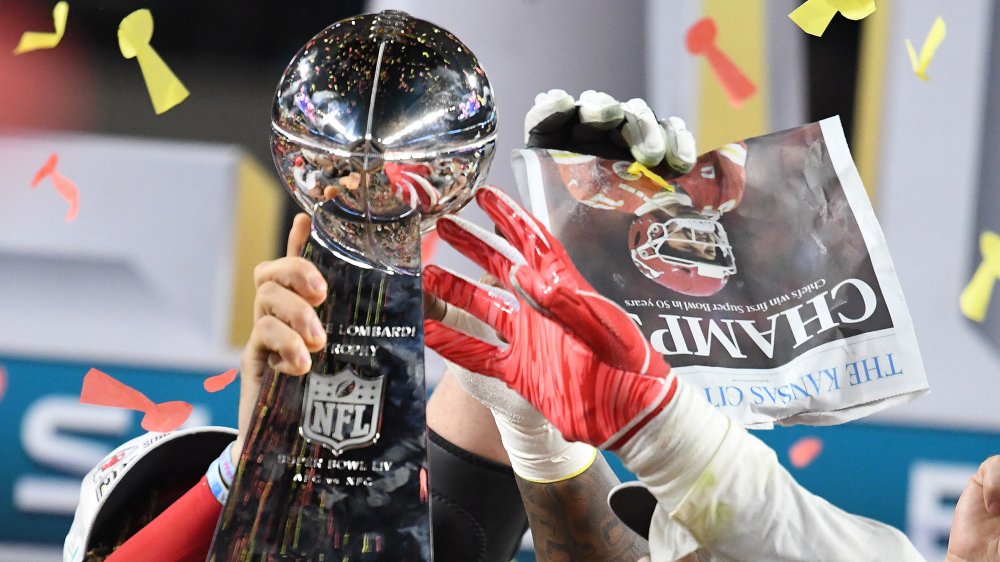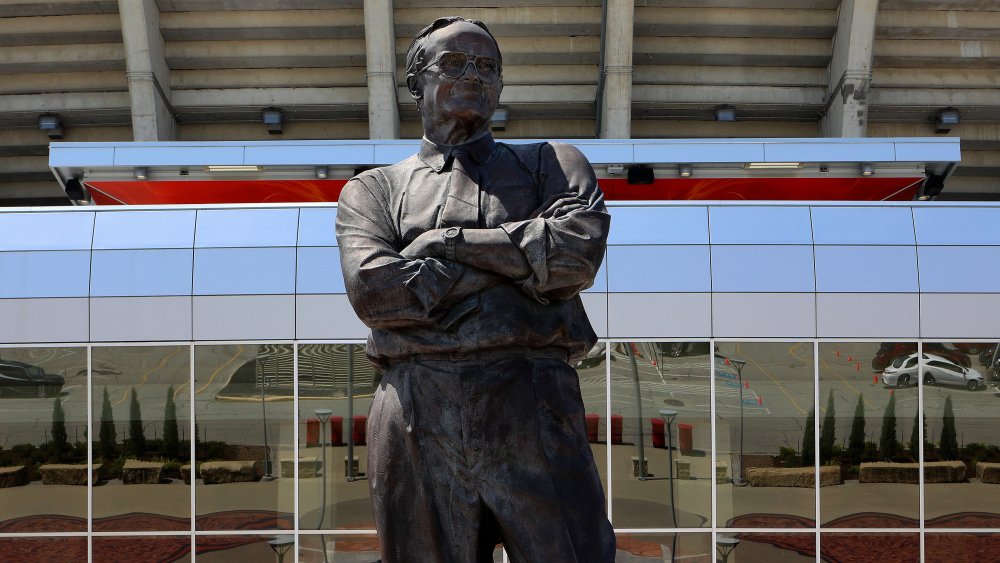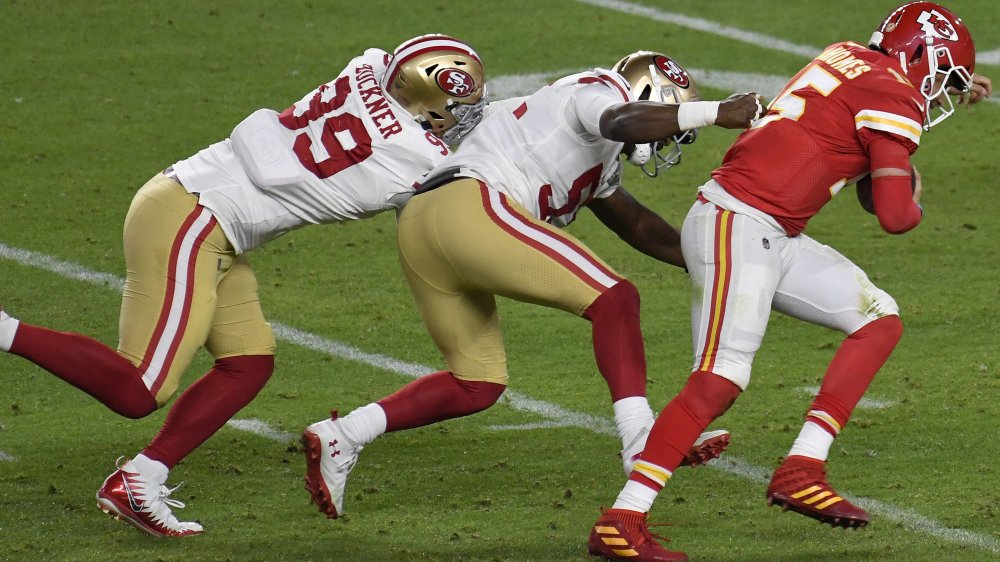How An Oil Tycoon Influenced The Creation Of The Super Bowl
Every February, many Americans gather in homes across the country with plenty of food on hand to celebrate a yearly tradition: the Super Bowl. In some circles, it ranks as more than a mere holiday. Sure, some people go to Super Bowl parties for the food; some may even be there only for the half-time show, or for the commercials. But the majority are there to root for one team to take home the ultimate crown ... er, trophy. The Super Bowl would not be the annual sporting/entertainment/culinary event that it is today if it weren't for an oil tycoon who wanted to challenge the National Football League (NFL).
Lamar Hunt, of the Texas Hunt family (owners of the East Texas Oil Field), wanted so very much to own a professional football team, but was thwarted several times by the NFL. Hunt had been a football player in college and clearly still loved the game. According to the Pro Football Hall of Fame, Hunt had approached the NFL to expand the league to Texas, but the group said no.
Undaunted, Hunt got other Texas oilmen and business people who likewise had been rejected by the NFL to start their own league. In 1959, they established the American Football League to bring football to Texas, and Lamar acquired a team to bolster the Hunt family fortune.
It was only a joke
In its early days, people didn't think much of the AFL. After all, how can an upstart league fight the Goliath NFL? Hunt, owner of the Dallas Texans, didn't care. He hired Hank Stram to be head coach, explained Encyclopedia Britannica, and for two seasons, the team did marginally well. The team even reached the AFL championship one season.
The NFL wasn't amused, though, and established the Dallas Cowboys to rival Hunt's team, reports the Pro Football Hall of Fame. For a few years, the two teams co-existed, but Hunt felt the market wasn't enough to sustain two Dallas teams, with fans having to choose which team to support. In 1963, Hunt decided to relocate the Dallas Texans to Kansas City and transformed it into the Kansas City Chiefs. The Chiefs, the present reigning Super Bowl champions, became a force in the AFL, capturing the league title.
For several seasons, the AFL did well, attracting a solid fan base. Two separate leagues fueled higher player salaries, because now they had not only a pick of teams to play on, but also leagues. Soon, the NFL started to see an opportunity to play AFL teams. The Chiefs played the first inaugural AFL-NFL championship against the Green Bay Packers. Once again, Hunt was instrumental in the championship. Hunt is credited with referring to the game jokingly as the Super Bowl. The name obviously stuck.
And then there was one
The AFL and the NFL continued separately until 1970. History wrote the two leagues started to think about merging around 1966. During that time, an unspoken rule — that NFL teams don't sign AFL players — was broken. Rather than risk a bidding war neither group could afford, they decided to become one league. In June 1966, the agreement was announced. The new league would be called the National Football League, comprised of the National Football Conference (NFC) and the American Football Conference (AFC).
Thanks to Hunt's joke, the annual AFL-NFL championship started to be referred to as the Super Bowl. The newly formed NFL had resisted officially calling the championship the Super Bowl, but as NFL chairman Pete Rozell told the Associated Press, they couldn't think of a better name. Soon enough, the NFL started doing Super Sundays, and so on, and so forth. And by Super Bowl III in 1969, it was forever called the Super Bowl.
Hunt wasn't just responsible for naming the Super Bowl; he was instrumental in there even being an NFL as it exists today. And lest you think he was only interested in football, Encyclopedia Britannica noted that Hunt was also responsible for establishing the World Championship Tennis organization and was an investor in the North American Soccer League. So thank you, Lamar Hunt, for Super Bowls (and Super Bowl parties). Now, who do we thank for the half-time show?


